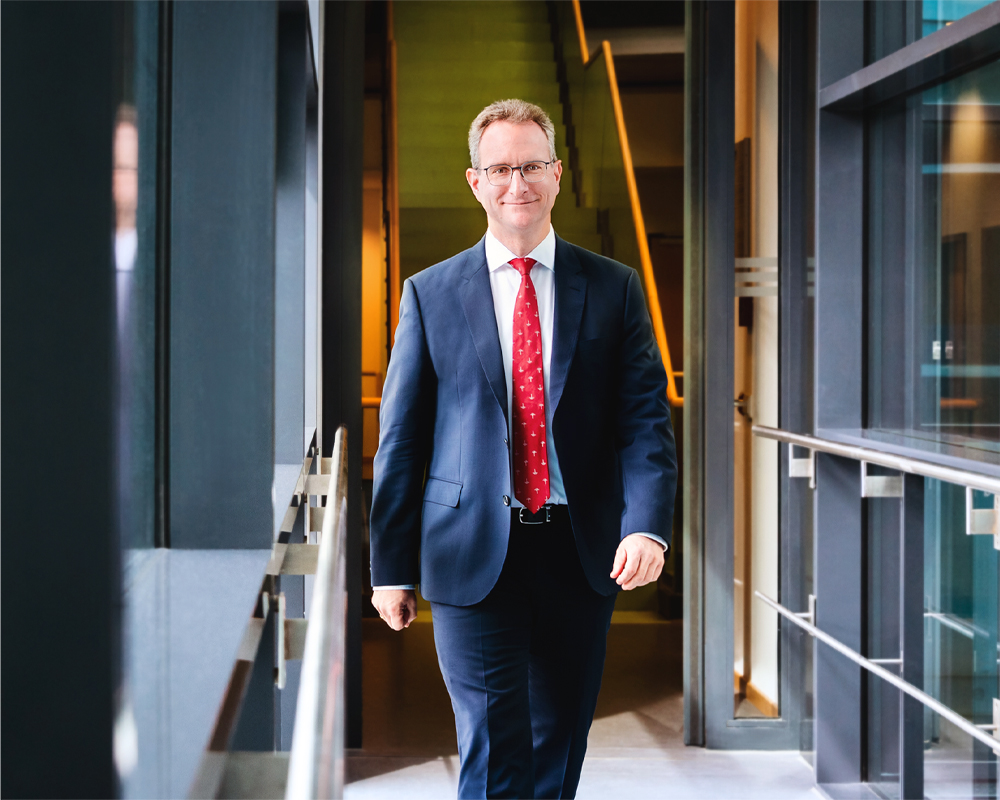Many citizens and partners from politics, science and business share our vision of a sustainable future – something which I am very pleased about. After all, getting to this goal requires numerous steps as well as committed cooperation and mutual support. Only by working together can we improve our quality of life and at the same time tackle such enormous challenges as climate change and resource scarcity.
In September 2023, we opened a new building at the Fraunhofer Pilot Plant Center PAZ in Schkopau. This has provided us with additional capacities for more sustainable polymer syntheses up to the ton scale. Seven million euros were provided for its construction by the European Union, the Ministry of Science, Energy, Climate Protection and the Environment of the State of Saxony-Anhalt, and the Federal Ministry of Education and Research. I would like to thank everyone involved for investing in a sustainable future.
In the joint project “SpreeTec neXt,” scientists from our institute are working with more than 70 partners to develop new production technologies for components and systems for decentralized energy technology. Our collaboration with the Brandenburg University of Technology Cottbus - Senftenberg has thus become even more intensive over the past year. We were also able to intensify our cooperation with the University of Potsdam as part of the Fraunhofer High-Performance Center Integration of Biological and Physical-Chemical Material Functions. The High-Performance Center is becoming increasingly impactful, providing excellent support for researchers in transferring new technologies and current knowledge to industry and society.
We also play a leading role in the Fraunhofer Strategic Research Field Bioeconomy together with the Fraunhofer Institutes IGB and IVV. Last year, we presented a European-level approach to the circular bioeconomy developed in our Fraunhofer Roadmap, which we discussed at a workshop with politicians, researchers, industry and society. This international networking is an important step towards a sustainable future. The workshop, which took place in September 2023, focused on the importance of bioplastics for the circular economy and the ecological and economic challenges of the bioeconomy.
As a partner in the Fraunhofer Clusters of Excellence, we work extremely successfully within Fraunhofer-Gesellschaft to develop complex technology trends. The Cluster of Excellence Circular Plastics Economy CCPE has succeeded in thermomechanically recycling fiber composites. The researchers in the Programmable Materials cluster developed a thermally switchable gear wheel that can be used for overload protection. Both clusters were evaluated last year and are now set to continue until 2026.
In spring 2023, the Fraunhofer SmartID team presented the first counterfeit-proof QR code. It can be used to mark, and then re-identify, packaging based on its properties. The project’s participants developed the innovative technology to market maturity within three years. The first license has now been granted. A success story that I would also like to see with lasting effect in other technologies. Preferably together with you.
I look forward to receiving your inquiry.
Prof. Dr. Alexander Böker
Institute Director
